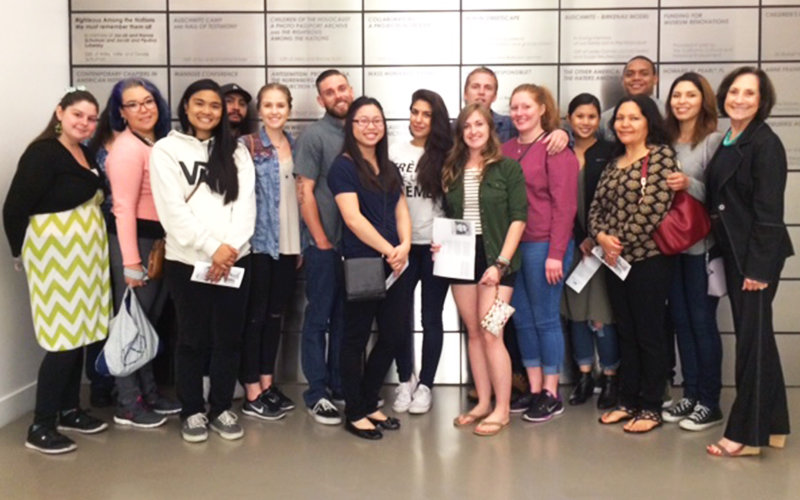
About a dozen students recently visited the Museum of Tolerance in Los Angeles with their associate professor of human communication studies, Irene Matz. The students in the human communication course on toxic and intoxicating leaders participated in interactive exhibits on the Holocaust and contemporary human-rights violations that illustrate the consequences of intolerance.
“The museum visit gives students an opportunity to not only study historical leaders who were responsible for atrocities, but to view present-day hate groups, incivilities, and unlawful and unethical groups, and events, and listen to language and the silences from the past to the present day from around the globe,” Matz said.
After the three-hour tour on Feb. 28, Matz hosted a lunch at nearby Factor’s Famous Deli, which is owned by the daughter of Holocaust survivors, and the students discussed their feelings and insights. The course, HCOM 445, is offered each spring in the College of Communications’ Department of Human Communication Studies.
Patricia Ferreira, a senior studying communication studies, said the experience left her questioning responsibility.
“That of the people in the world who argue over the meaning of atrocity. And the responsibility of the people who would allow such toxic leadership to flourish — the responsibility of the followers,” she said.
Ferreira said she pondered “my responsibility to question the motives of myself and others when determining meaning. The responsibility of practicing The Golden Rule toward all of person kind. And the courage to be responsible.”
More than five million people have visited the Museum of Tolerance since its opening in 1993. The museum challenges visitors to understand the Holocaust in historical and contemporary contexts and uses interactive displays to confront global prejudice and discrimination.